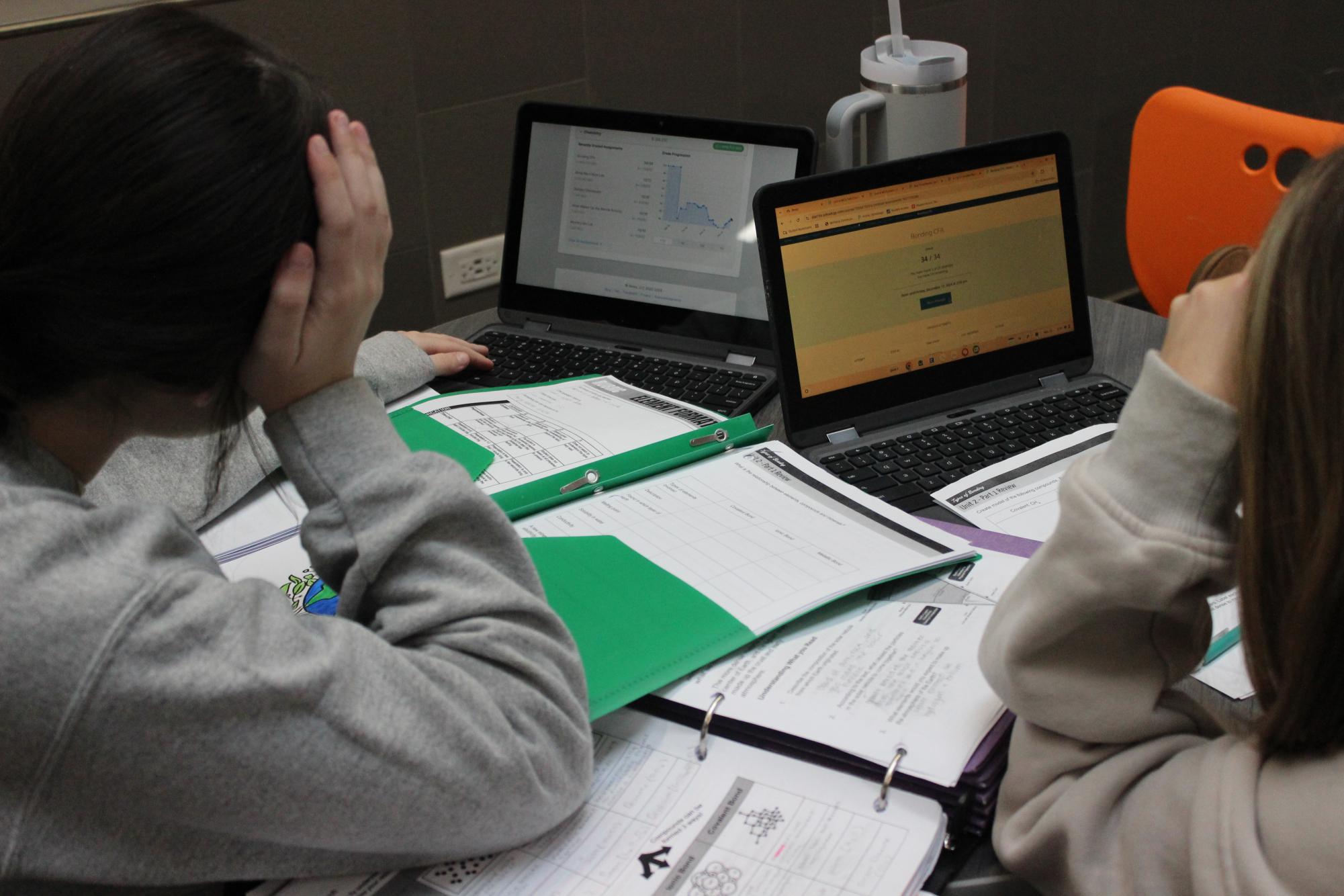A junior walks into their AP US History class on the first day of school, right as the bell rings. They sit down, already having trouble finding a seat, when even more students file in behind them. As the junior waits, not remembering their AP World History class being this packed last year, they worry how they will stand out in a class with this many students.
Last year, the Accelerated Placement Act automatically enrolls students into the next most rigorous class if they meet or exceed the benchmark for standardized testing. This policy went into full effect at MCHS beginning with the 24-25 school year.
English division chair Gina Nomikoudis explained that this year there has been an increase in the sizes of accelerated classes across all divisions. But the APA has made the placement process more impersonal.
“It takes away from what we know about you guys,” said Nomikoudids. “So if you want to focus all of your energy in the sciences, maybe you shouldn’t be placed in a really difficult English class.”
In the past counselors would look at a variety of data points, including previous grades and teacher recommendations, to get a more detailed understanding of what classes would be worth a student’s time. Since standardized testing shows only a part of what makes up a student, it makes one-on-one conversations with counselors more important.
Sophomore counselor Nicole Bacigalupo said that she has had more students and parents coming to her to discuss their placement than she has in previous years, which is from the growth in accelerated placement.
One reason, other than the APA, that Bacigalupo thinks this growth is happening is because of the level change process.
“This could be because not as many students and families learned about the level change process or follow through with that level change process,” said Bacigalupo. “So we have more kids in those higher level classes than in the past.”
Previously this process was through a paper form, but now it is done through a Google form, but this was communicated through email and presentation over the summer. Bacigalupo thinks that it wasn’t communicated well enough, so this is another contributing factor to the increase.
“All my friends are in harder classes this year,” said junior Kyleigh Witt, “and a lot of them tried to do level changes which they were denied because the deadline already passed.”
Students, such as Witt, seem to be agreeing with Bacigalupo. Witt mentioned that the miscommunication concerning level changes has caused more students this year to be stuck in difficult classes that they can’t keep up with.
There is more homework associated with AP, honors, and dual credit classes, and sports, jobs, or clubs that take up their time outside of school can get in the way of them succeeding.
Conversely, students who do have the time to keep up with these classes, and want to put in the effort generally do well. The students that have the time to keep up have better reasons to take these classes, and the new process for class placement makes it difficult to differentiate who these students are.
Teachers, counselors, and division chairs try harder to listen to and support the students that weren’t able to switch out before the deadline, so they have a better chance of keeping up with the workload.
“I try to be here for kiddos that feel like they’ve missed the deadlines,” continued Nomikoudis, “they’re in this hard class and they can’t get out, so I try to act as a support to make sure they can build a relationship with their teacher, or come to me for help.”
Nomikoudis added that it is important for students to have support, so they don’t feel overwhelmed and fall behind. It can be difficult for the division chairs to have this impact on students, so this job falls on the teachers and counselors.
While there are many contradicting opinions about the impact of the APA, it is important for students to remember that their placement is a conversation, and they get the final say.
“There are processes in place for students and families to communicate what they think is appropriate for their student,” said Bacigalupo. “So I would just encourage them, make sure they advocate for themselves and take advantage of that.”
The bell rings again, indicating class is over, and the junior packs up their bag. They stop to meet their teacher more formally before heading out the door, realizing that it may take more effort for them to stand out this year.


